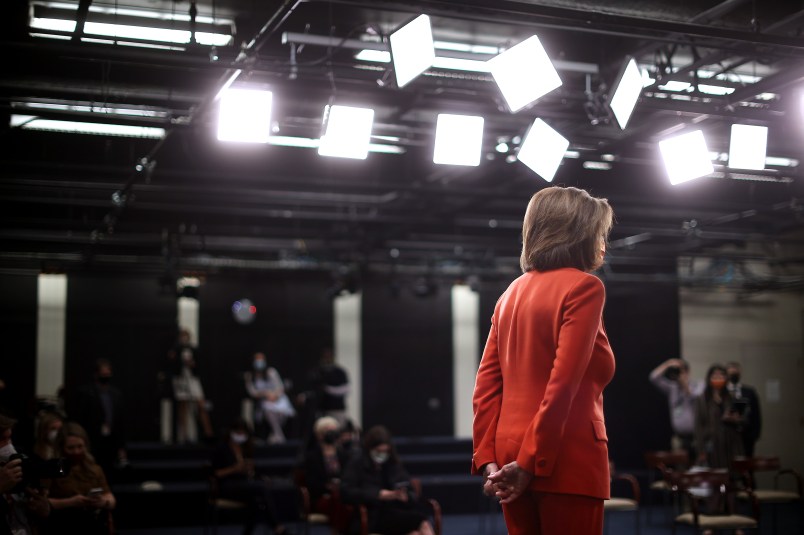House Speaker Nancy Pelosi (D-CA) emphasized the need for bipartisan support of the commission to investigate the Capitol attack in a Monday night letter, though the two parties are still divided on the basics.
“It is essential that we proceed in a bipartisan way in order to have a respected outcome,” she wrote in the dear colleague letter, a clear nod to the 9/11 commission which was resolutely bipartisan and is now frequently held up as the gold standard of post-crisis commissions.
The nascent stages of the commission’s development, though, point to a low likelihood that the January 6 commission will operate much like the 9/11 one, whose chair and vice chair worked in tandem and released a report unanimously signed off on by all the commissioners.
Pelosi attached the draft legislation to set up the 1/6 commission to her letter, which she gave to Republican leadership last month. They howled then about two specific pieces of the proposal: that Democrats would get seven commissioners to their four, and that Democrats want the scope of the investigation to include the events leading up to the attack and not just the security lapses on the day it happened.
The commission would investigate “the influencing factors that fomented such attack on American representative democracy while engaged in a constitutional process,” the proposal said.
Those influencing factors — the months of voter fraud conspiracy spread by former President Donald Trump and his Republican allies — are a sticking point. Loathe to place blame with Trump who much of the party is still beholden to, Senate Minority Leader Mitch McConnell (R-KY) has already threatened to push a focus on supposed left-wing violence — the overwhelmingly peaceful Black Lives Matter protests and antifa — if Democrats insist on the wider scope.
Pelosi’s office did not immediately return TPM’s inquiries about if she’d consider narrowing the commission’s scope to get bipartisan support.
Phil Angelides, the chairman of the Financial Crisis Inquiry Commission who made the case to TPM about why a partisan commission can still be valuable, said that Democrats need to lock down the wide scope for the exercise to be useful.
“The scope has to be defined — this cannot be set up, as Republicans have indicated, with an amorphous scope that will turn into a hunting license to pursue conspiracy theories,” he said. “If Republicans can’t agree on that examination, obviously that’s a huge signal, a red flare.”
That sticky scope question is also related to some Democratic opposition to the commission. Some members have expressed skepticism about giving Republicans seats on the commission at all, given the public participation of some of the party’s representatives in supercharging the conspiracy theories that brought the mob to the Capitol halls.
“We do not owe delusional deniers a role or a platform in a commission designed to try to ferret out extremism and violence to prevent its recurrence,” said Rep. Gerry Connolly (D-VA) last month. “These people are dangerous.”
Pelosi has not been coy in her criticisms of Republicans and their role in the Capitol attack.
“Ron Johnson seems to be taking the lead on what the scope will be of how we look at protecting our country from domestic terrorism,” she quipped in response to McConnell’s blasting of her commission draft proposal.
Until the two sides can agree on the commission’s scope, the process is stalled. The legislation to stand it up can be filibustered in the Senate, giving Republicans the power to sink it if they choose.
“No matter how the Republicans decide to play this, there is enormous value in writing the definitive history,” Angelides said. “But a precondition to being able to do that is an agreement on scope.”



